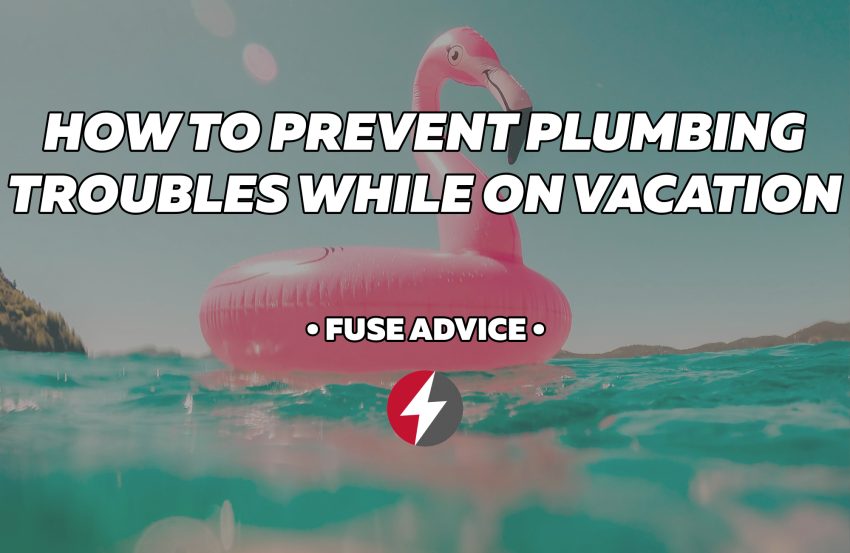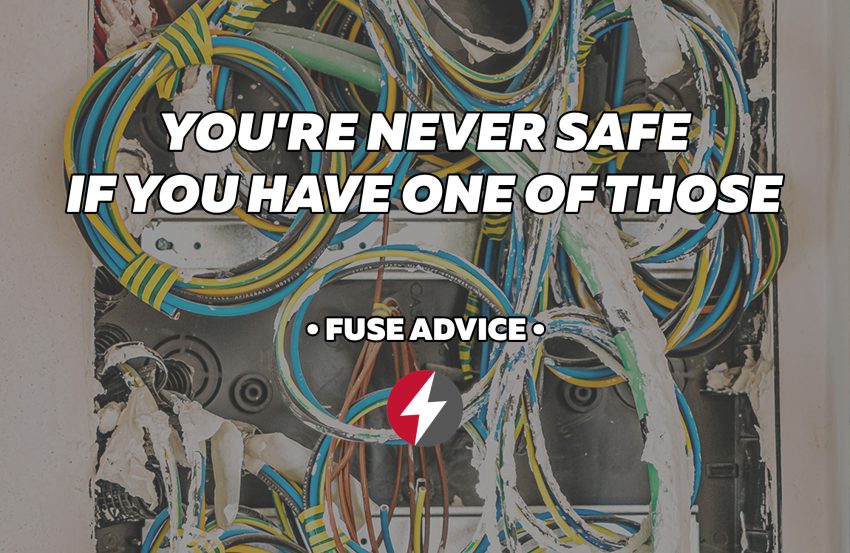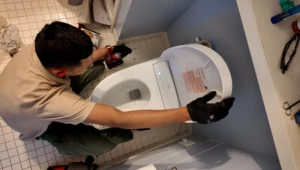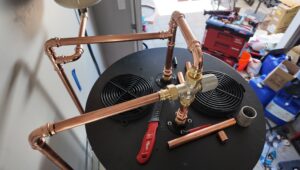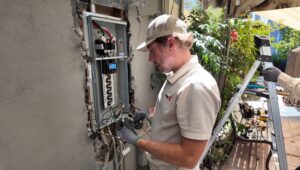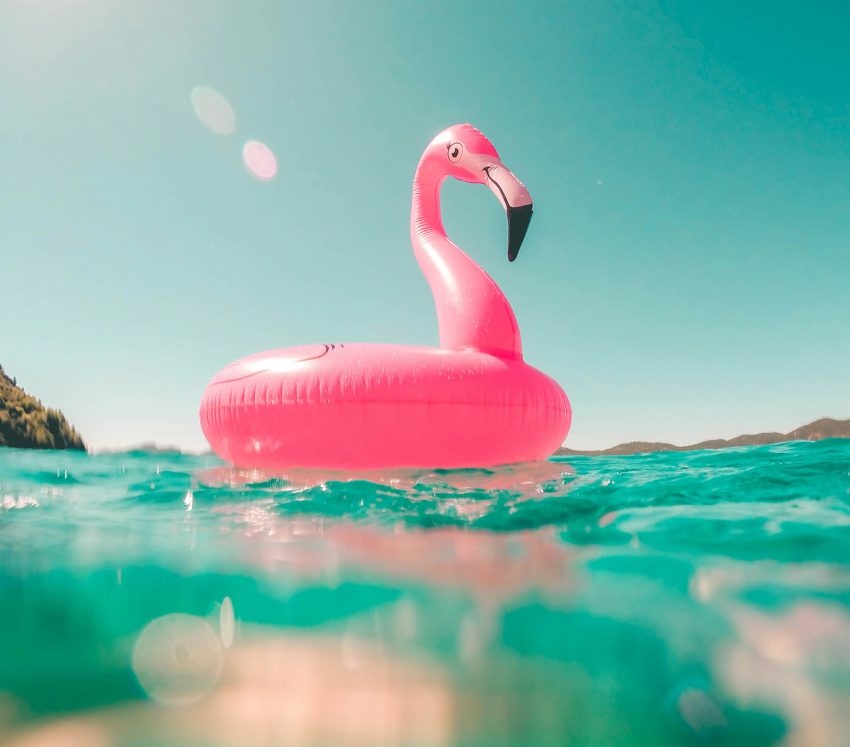
Vacation is a time to relax, unwind, and escape the everyday stresses of life. However, nothing can ruin the post-vacation glow faster than coming home to a plumbing disaster. From burst pipes to overflowing toilets, plumbing issues can cause significant damage to your home and cost a fortune to repair. Preventing these problems is essential, and with a little preparation, you can ensure your home remains safe and dry while you enjoy your time away. This article will provide a comprehensive guide on how to prevent plumbing problems while on vacation.
1. Check for Leaks
Before leaving for vacation, a thorough check for leaks is crucial. Even a small leak can lead to significant damage if left unattended for an extended period.
Inspect Faucets and Fixtures
Examine all faucets, showerheads, and other fixtures for drips and leaks. If you notice any, repair them immediately. Often, tightening a connection or replacing a washer can solve the problem.
Check Under Sinks
Inspect the area under sinks in your kitchen and bathrooms. Look for any signs of moisture, such as water stains or dampness, which could indicate a slow leak. Address any issues you find promptly.
Examine Water Supply Lines
Water supply lines to appliances like washing machines, dishwashers, and refrigerators can wear out over time. Check these lines for any signs of wear or damage and replace them if necessary.
2. Shut Off the Water Supply
One of the most effective ways to prevent plumbing problems while on vacation is to shut off the main water supply to your home. This simple step can prevent water from flowing through your pipes and potentially causing a leak or burst.
Locate the Main Shut-Off Valve
The main shut-off valve is usually located near the water meter, either inside or outside your home. If you’re unsure where it is, consult your home’s plumbing plans or contact a professional plumber.
Turn Off Individual Valves
If shutting off the main water supply isn’t feasible, consider turning off the valves to specific appliances and fixtures, such as your washing machine, dishwasher, and toilets. This can still reduce the risk of leaks without completely shutting off your water.
3. Drain Your Pipes
Draining your pipes is another preventive measure to consider, especially if you’re going on an extended vacation. This process involves removing water from your plumbing system, which can prevent pipes from freezing and bursting in colder climates.
How to Drain Your Pipes
- Turn Off the Main Water Supply: Locate and turn off the main shut-off valve.
- Open Faucets: Open all faucets, starting from the top floor and working your way down. This will allow the water to drain out of the pipes.
- Flush Toilets: Flush all toilets to empty the tanks and bowls.
- Drain Water Heaters and Boilers: If necessary, drain water heaters and boilers according to the manufacturer’s instructions.
4. Inspect and Maintain Water Heaters
Water heaters are a common source of plumbing problems. Before leaving for vacation, inspect your water heater for any signs of wear or damage.
Check for Leaks
Examine the area around your water heater for any signs of leaks. Look for puddles of water, rust, or corrosion on the tank. If you notice any issues, contact a professional plumber to address them before you leave.
Adjust the Temperature
If you’ll be away for an extended period, consider lowering the temperature on your water heater to save energy and reduce the risk of overheating. Many water heaters have a “vacation” setting that lowers the temperature without completely turning off the heater.
5. Maintain Your Sump Pump
If your home has a sump pump, ensuring it is in good working condition is essential to prevent basement flooding while you’re away.
Test the Sump Pump
Pour a bucket of water into the sump pit to test the pump. The pump should activate and drain the water quickly. If it doesn’t, check the power source and ensure the pump is plugged in and functioning correctly.
Clean the Sump Pit
Remove any debris from the sump pit that could clog the pump. Regular maintenance of your sump pump can help ensure it operates effectively when needed.
6. Prepare Your Toilets
Toilets can be a source of plumbing problems if not properly maintained before a vacation.
Check for Leaks
Inspect the area around your toilets for any signs of leaks. Look for water stains, dampness, or puddles on the floor. If you notice any issues, repair them before you leave.
Flush and Clean
Flush each toilet and clean the bowls thoroughly. Adding a small amount of bleach to the bowl can help prevent the buildup of mold and bacteria while you’re away.
Close the Toilet Lids
Closing the toilet lids can help prevent dust and debris from entering the bowls, reducing the risk of clogs.
7. Secure Outdoor Faucets and Hoses
Outdoor faucets and hoses can be vulnerable to leaks and freezing temperatures. Taking the time to secure them can help prevent plumbing problems.
Disconnect and Store Hoses
Disconnect all garden hoses and store them indoors. Leaving hoses connected can cause water to remain in the pipes, increasing the risk of freezing and bursting.
Insulate Outdoor Faucets
In colder climates, consider insulating outdoor faucets with foam covers to protect them from freezing temperatures. This simple step can prevent pipes from bursting and causing water damage.
8. Use Smart Technology
Smart home technology can be a valuable tool in preventing plumbing problems while you’re on vacation.
Install Leak Detectors
Leak detectors can alert you to any leaks or unusual water activity in your home. These devices can be placed near appliances, sinks, and water heaters to monitor for leaks and send alerts to your smartphone.
Smart Water Shut-Off Valves
Consider installing a smart water shut-off valve that can automatically shut off your water supply if a leak is detected. This technology can provide peace of mind and help prevent significant water damage.
9. Arrange for a House Sitter
If you’re going on an extended vacation, consider arranging for a house sitter to check on your home periodically. A house sitter can ensure everything is in order and address any potential issues promptly.
Provide Instructions
Leave detailed instructions for your house sitter, including how to check for leaks, where to find shut-off valves, and who to contact in case of an emergency.
Schedule Regular Visits
Ask your house sitter to visit your home regularly to check for any signs of plumbing problems. Regular visits can help catch issues early and prevent significant damage.
10. Plan for Emergencies
Despite your best efforts, emergencies can still happen. Being prepared can help you respond quickly and minimize damage.
Emergency Contact Information
Leave emergency contact information for a trusted neighbor, friend, or family member who can respond to any issues while you’re away. Include the contact information for a professional plumber as well.
Know Your Insurance Policy
Review your homeowner’s insurance policy to understand what is covered in the event of a plumbing emergency. Ensure you have the necessary coverage to protect your home and belongings.
Conclusion
Preventing plumbing problems while on vacation requires a combination of preparation, maintenance, and smart technology. By taking these steps, you can enjoy your time away with peace of mind, knowing your home is protected from potential plumbing disasters. From checking for leaks and shutting off the water supply to using smart technology and arranging for a house sitter, these preventive measures can help ensure you return to a safe and dry home.
